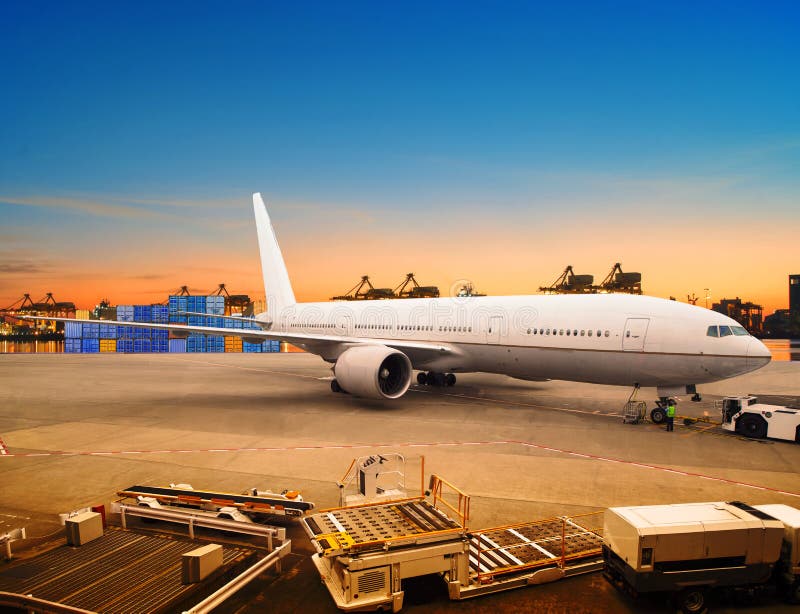- By TOP CHINA FREIGHT
- September 18, 2025
- Air Freight, Shipping
Table of Contents
Many businesses often ask, “how long does air freight take from China?” The answer depends on factors such as destination, type of service, cargo type, customs clearance, and seasonal demand. Understanding these variables can help companies plan shipments efficiently, reduce storage costs, and optimize supply chains.

What factors influence air freight transit times?
Several elements directly impact how long air freight from China takes:
Destination airport:
Proximity and connectivity affect flight frequency and layovers.
Type of service:
Express, standard, or charter flights vary in speed.
Customs clearance:
Delays may occur if documents are incomplete.
Cargo type:
Dangerous goods or oversized items may require extra handling.
Seasonal demand:
Peak seasons like Chinese New Year increase transit times.
By considering these factors, businesses can select the most suitable air freight options and avoid unexpected delays.
How long does air freight from China take to major regions?
Transit times vary by region and service type:
| Destination | Standard Air Freight | Express Air Freight | Typical Notes |
|---|---|---|---|
| USA | 5–10 days | 2–4 days | Depends on customs and hub connections |
| Europe | 3–7 days | 1–3 days | Major airports like Frankfurt or London |
| Southeast Asia | 1–3 days | Same day or next day | Short-haul flights are faster |
| Australia | 4–8 days | 2–3 days | Major cities like Sydney and Melbourne |
| Middle East | 2–5 days | 1–2 days | Dubai and Doha are major hubs |
What are the types of air freight services?
Cost-effective, suitable for non-urgent cargo, transit typically 5–10 days internationally.
Premium service for urgent shipments, usually 1–3 days for most destinations.
Dedicated aircraft for large or specialized shipments; transit depends on scheduling and flight path.
How does air freight compare to other shipping methods?
Air freight is faster but generally more expensive than sea or rail transport.
| Shipping Method | Transit Time | Cost | Ideal For | Pros | Cons |
|---|---|---|---|---|---|
| Air Freight | 1–10 days | High | Urgent, high-value goods | Fastest, reliable, predictable | Expensive, weight restrictions |
| Sea Freight | 30–45 days | Low | Bulk cargo | Cost-effective, large capacity | Slow, affected by port congestion |
| Rail Freight | 15–25 days | Medium | Electronics, machinery | Moderate cost, environmentally friendly | Limited routes, slower than air |
This comparison helps businesses balance speed, cost, and cargo type when planning shipments.
What is the impact of cargo type on transit time?
Cargo characteristics can influence how long air freight takes:
Perishable goods:
Require refrigerated containers and faster handling.
Hazardous materials:
May need special permits, extending processing time.
High-value electronics:
Often cleared quickly but require careful packaging.
Oversized shipments:
Limited aircraft capacity may necessitate multiple flights.
Accurate categorization ensures compliance and avoids delays.
How do customs and documentation affect delivery?

Efficient customs clearance can reduce transit time significantly.
Required documents include:
| Document | Purpose |
|---|---|
| Commercial Invoice | Declares cargo value and description |
| Air Waybill | Contract of carriage between shipper and carrier |
| Packing List | Details contents for inspection |
| Certificate of Origin | Confirms where goods were manufactured |
| Import Licenses | Required for restricted goods |
| Customs Declaration | Legal clearance for importing country |
Incomplete or inaccurate documents can delay shipments by several days.
What are the seasonal trends in air freight from China?
January–February, limited flights and higher demand.
October, fewer available flights and increased cargo rates.
Pre-Christmas for Europe/USA shipments, creating bottlenecks.
How much does air freight cost from China?

Air freight pricing is based on weight, volume, and service type.
| Service Type | Approx. Rate | Notes |
|---|---|---|
| Standard | $4–6 per kg | Best for non-urgent shipments |
| Express | $6–12 per kg | For urgent shipments, faster delivery |
| Charter | $8,000–$20,000 per flight | Large or specialized cargo |
Costs can also fluctuate with seasonal demand, fuel surcharges, and airport fees.
Case Study: Electronics Exporter

A Shenzhen-based electronics company shipped 500 kg of high-value goods to New York via standard air freight. The shipment usually took 8–10 days, but by switching to express service, transit was reduced to 3 days. The faster delivery minimized inventory holding costs and improved client satisfaction. This example demonstrates the importance of choosing the appropriate air freight service based on urgency and cost.
Tips to optimize air freight delivery times
Book in advance:
Secure flight space before peak seasons.
Use a reliable freight forwarder:
Expertise reduces clearance delays.
Prepare documentation accurately:
Avoid customs bottlenecks.
Package goods properly:
Prevent delays caused by inspection or damage.
Track shipments in real-time:
Anticipate potential issues and plan accordingly.
These strategies enhance efficiency and reduce transit uncertainty.
Conclusion
Shipping via air freight from China is the fastest way to move goods internationally, with transit times ranging from 1–10 days depending on service type, destination, and cargo characteristics. Accurate documentation, proper planning, and selecting the right service ensure timely delivery and cost-effective operations. Companies shipping electronics, machinery, perishable goods, or urgent products benefit from air freight’s speed and reliability, improving supply chain efficiency and customer satisfaction.
Need a Shipping Quote?
If you want expert guidance and peace of mind, our team is ready to assist.
TJ China Freight offers tailored solutions to help businesses of all sizes ship more reliably from China.

FAQ
Q1:What is express air freight, and how fast is it?
Express air freight prioritizes urgent shipments and usually delivers within 1–3 days to most major international destinations.
Q2:Does cargo type affect delivery time?
Yes. Perishable, oversized, or hazardous goods may require extra handling and permits, potentially extending transit time.
Q3:Can customs delays significantly impact transit?
Yes. Inaccurate or incomplete documentation can add several days to transit, making careful preparation critical.
Q4:How do seasonal peaks influence air freight?
Periods like Chinese New Year or Christmas lead to high demand, limited flight space, and longer delivery times.
Q5:Is air freight more cost-effective than sea freight?
Air freight is faster but more expensive; businesses must balance speed with cost depending on shipment urgency.
